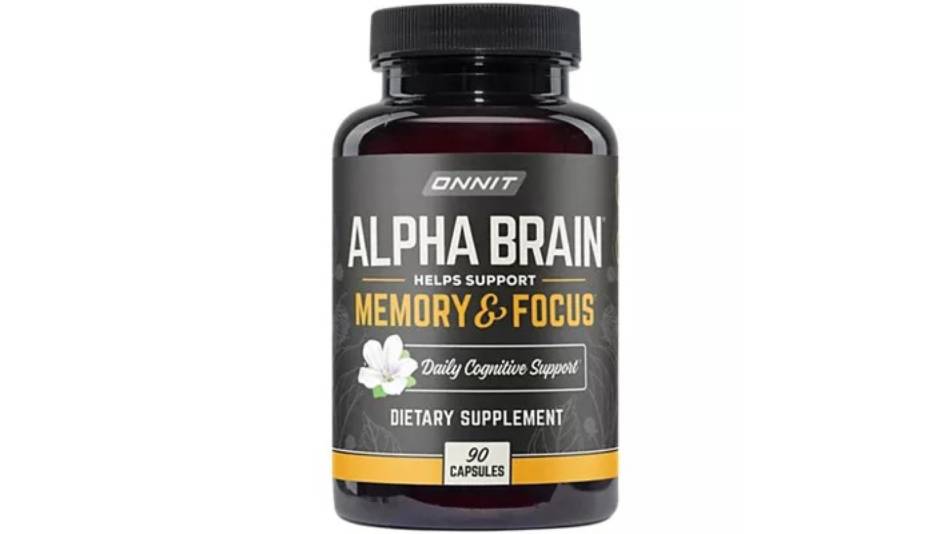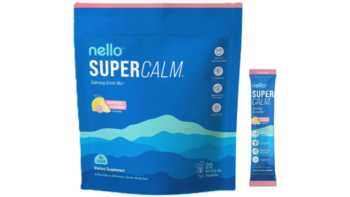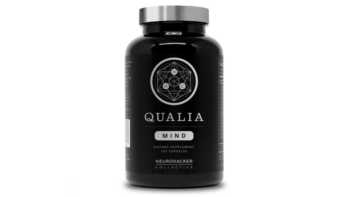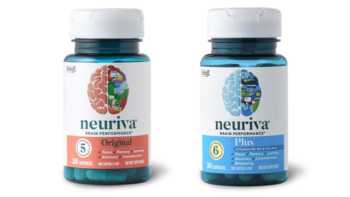
Answer:
According to the website for Alpha Brain (from Onnit Labs Inc.), it "...can help you remember names and places, focus on complex tasks, think more clearly under stress, and react more quickly." However, company-sponsored studies of Alpha Brain suggest it may be helpful for improving only limited aspects of memory, and these studies have been conducted only with young adults. In addition, one of the key ingredients (vinpocetine) in the trials of Alpha Brain is no longer in the product.
Read more below about Alpha Brain, including its clinical evidence, current ingredients, and potential side effects and drug interactions.
Clinical Evidence
In the largest study of Alpha Brain, 63 healthy young men and women (average age 22) took two capsules of or a placebo daily with food for six weeks. At the end of the study, those who took Alpha Brain had a 12% improvement in verbal recall compared to placebo; however, there were no improvements in any other measures of learning and memory, attention, concentration, or speed of processing compared to placebo (Solomon, Hum Psychopharmacol 2016). A subset of the participants in this study had the electrical activity in their brains measured with electroencephalography (EEG). The EEG results showed that Alpha Brain, after a single dose as well as after six weeks of supplementation, it took the brain a shorter period of time to react to certain stimuli compared to placebo, suggesting increased attention. Six-week supplementation also significantly increased Peak Alpha Frequency (PAF) compared to placebo, suggesting increased processing speed (Leech Alzheimers Dement 2015).
In the third and most recently published Alpha Brain study, forty-three male and female active duty U.S. Army Soldiers, ages 25 to 35, took Alpha Brain or placebo with breakfast (2 pills) and dinner (1 pill) for one month. Reaction time and target accuracy when shooting a rifle was not improved by taking Alpha Brain relative to placebo. There was also no improvement in measures of mood or stress (i.e., depression, anxiety fatigue, and resiliency), nor changes in levels of cortisol (a "stress hormone") measured in hair samples, compared to placebo (Barringer, J Int Soc Sports Nutr 2018).
There do not appear to be any studies on the effects of Alpha Brain on memory, cognition or mood in middle-aged or older adults.
Ingredients
Alpha Brain contains a long list of ingredients, many of which are listed as part of a "blend" in which the exact amount of each ingredient is not listed. Be aware that not all of the ingredients in Alpha Brain products evaluated in the clinical studies cited above are still included in commercially available Alpha Brain as of 2023.
The suggested daily serving of two capsules is listed as containing: 10 mg of vitamin B-6, 650 mg of a blend containing L-tyrosine, L-theanine, oat straw extract and phosphatidylserine, 350 mg of cat's claw extract, 240 mg of a blend containing L-alpha-glycerylphosphorylcholine (GPC), bacopa extract (100 mg), Huperzia serrata (providing 400 mcg of Huperzine A), and 60 mg of a blend containing L-leucine, and pterostilbene. In the past Alpha Brain also contained 5 mg of vinpocetine, but this ingredient is no longer in the product.
There is some preliminary clinical evidence that some of these ingredients can improve memory, cognition, mood or alertness in certain individuals. For example, some evidence shows that L-theanine (which is found in tea) can increase alpha brain waves, which are associated with a relaxed yet alert state. Some research suggests that Huperzine A may help improve memory and cognition in people with Alzheimer's disease or dementia, but there is little evidence it improves memory in healthy people.
L-alpha-glycerylphosphorylcholine, or GPC, a form of choline in Alpha Brain, has been shown to help improve cognition in people with mild to moderate probable or possible Alzheimer's disease, but it's not clear if there is a benefit in healthy people.
While having low levels of vitamin B-6 has been associated with higher rates of cognitive decline in older adults, and some clinical studies have found that taking a combination of B vitamins may slow cognitive decline in older adults with mild cognitive impairment, it's not clear that taking B-6 alone can improve memory or focus.
It has been speculated that some of the compounds in cat's claw may play a role in chemical processes in the brain involved with memory and cognition, but there do not appear to be studies of the herb's effect on memory or cognition in people, and it does not appear to slow cognitive decline in people with Alzheimer's disease.
Vinpocetine was in the Alpha Brain formula tested in clinical trials but is no longer included in Alpha Brain. Vinpocetine has demonstrated some evidence for improving memory and cognition in people with epilepsy and dementia when taken at a daily dose of 10 mg (Ogunrin, Ann Med Health Sci Res 2014). The FDA has considered not allowing vinpocetine to be sold as a dietary supplement ingredient, in part, because it was investigated as a new drug before it was marketed as a supplement, but, as of 2023, it is still allowed in dietary supplements. Women who are pregnant or who could become pregnant should not take vinpocetine because it may cause miscarriage or harm fetal development, and the companies marketing vinpocetine-containing supplements have been advised by the FDA to include safety warnings.
Safety and Side-Effects
The most commonly reported side effects include headache, upset stomach and vivid dreams (Solomon, Hum Psychopharmacol 2016). Interestingly, there are a number of customer reviews on the company's website indicating similar side effects, including nausea, vomiting, stomach pain, diarrhea, light-headedness/dizziness, jitteriness, hyperactivity, and headache. No serious adverse events have been reported to be associated with Alpha Brain.
Be aware that there are potential side effects and drug interactions for many of the listed ingredients in Alpha Brain, including the following:
L-theanine may lower blood pressure and should be used with caution when taking blood-pressure lowering medications.
Huperzine A can decrease heart rate and must be used with caution in patients with heart problems; it can interact anticholinergic drugs, such as atropine, benztropine (Cogentin) as well as cholinergic drugs and acetylcholinesterase inhibitors, such as bethanechol (Urecholine) and donepezil (Aricept).
Phosphatidylserine has anticoagulant effects (Tersenov, Vopr Med Khim 2020) and should not be taken by people taking prescription blood-thinning medications such as warfarin (Coumadin), heparin, aspirin, pentoxifylline (Trental), clopidogrel (Plavix), or ticlopidine (Ticlid).
Cat's claw may cause digestive upset or allergic reactions; one case of kidney failure has been reported in a person with systemic lupus (Erowele, Am J Health Syst Pharm 2009; Hilepo, Nephron 1997).
Alpha Brain contains 10 mg of B-6 which, although not dangerous, is well above the RDA for adults. Be aware that taking Alpha Brain in addition to other products containing large amounts of B-6, such as multivitamins, B complexes, or energy drinks, could increase the risk of B-6 toxicity.
Women who are pregnant or nursing, and people with kidney or liver disease should not take Alpha Brain, as the safety of it and many of its ingredients have not been established in such individuals.
Alpha Brain was tested in 2022 and certified drug-free by the Banned Substances Control Group.
Dosage and How to Take
The recommended daily serving of Alpha Brain is two capsules, which the label advises should be consumed with a light meal.
Cost
The cost for a 45-day supply (90 capsules) of Alpha Brain capsules ranges from $67.96 to $79.95, and the cost for 15-day supply (30 capsules) ranges from $29.71 to $34.95.
Alpha Brain also comes in an instant powder drink mix in a 108 gram tub ($55.95) or individual packets ($50.96 to $59.95 for 30 packs).
The bottom line:
Clinical studies on Alpha Brain in young adults suggest it may improve verbal recall, but it does not seem to improve other measures of learning and memory, attention, concentration, or speed of processing. In addition, there are no studies of its effects on people who are older or who are suffering cognitive decline or dementia. Be aware that several ingredients in Alpha Brain may interact with medications. Women who are pregnant or nursing, and people with kidney or liver disease should not take Alpha Brain.
Join today to unlock all member benefits including full access to all CL Answers and over 1,400 reviews.
Join NowAlready a member? Sign In Here.
Join now at www.consumerlab.com/join/

















Submit your comment
This feature is restricted to active members.
Join now to add comments and get all member benefits, including over 1,400 reviews.
Join NowAlready a member? Sign in here.